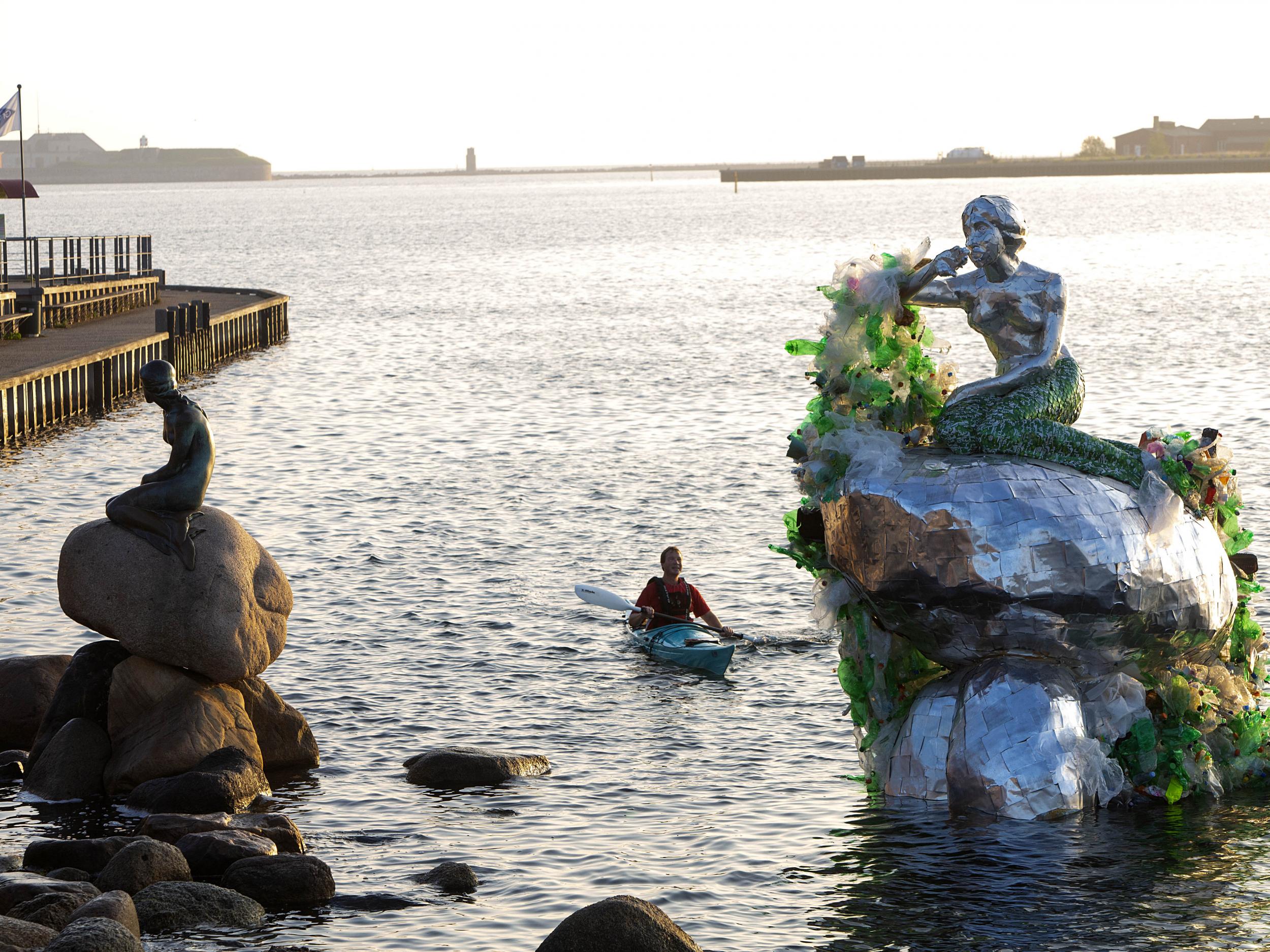Major brewery eradicates six pack rings blamed for wildlife deaths in bid to tackle plastic pollution
Environmentalists welcome move by Danish brewing giant Carlsberg intended to cut waste and reduce carbon emissions in beer industry
Your support helps us to tell the story
From reproductive rights to climate change to Big Tech, The Independent is on the ground when the story is developing. Whether it's investigating the financials of Elon Musk's pro-Trump PAC or producing our latest documentary, 'The A Word', which shines a light on the American women fighting for reproductive rights, we know how important it is to parse out the facts from the messaging.
At such a critical moment in US history, we need reporters on the ground. Your donation allows us to keep sending journalists to speak to both sides of the story.
The Independent is trusted by Americans across the entire political spectrum. And unlike many other quality news outlets, we choose not to lock Americans out of our reporting and analysis with paywalls. We believe quality journalism should be available to everyone, paid for by those who can afford it.
Your support makes all the difference.One of the world’s biggest breweries has taken a major step to combat the pollution choking the world’s oceans by eradicating the plastic rings used in six packs of beer.
Long viewed as a hazard, as evidenced by harrowing images of birds and turtles tangled in them, the rings have been replaced with tiny dots of glue binding the cans together.
The new technology is part of a raft of new measures the Danish brewing giant Carlsberg has introduced to make brewing more sustainable, alongside reusable bottles with longer lifespans, recycled packaging and more eco-friendly inks.
Analysis by the company predicts its efforts will reduce plastic waste by more than 1200 tonnes a year – the equivalent of 60 million plastic bags.
The new low-plastic product, known as the “Snap Pack”, will be available in hundreds of UK Tesco branches from September.
Its special glue formula means cans will hold together until they are ready to be drunk, but can be easily twisted or snapped apart when the time comes.
While cutting plastic from six packs is a drop in the ocean when compared with the million of tonnes used every year in packaging, environmentalists have welcomed the beer giant’s efforts as a game changer for the industry.
Plastic pollution has been high on the public agenda since Blue Planet 2 brought its grim impact into everyone’s living rooms in late 2017, but concern about six-pack rings stretches back much further.
As early as the 1970s, activists were urging the public to cut their rings before throwing them away to stop animals throttling themselves to death – although it is unclear how many such incidents have been recorded.
According to Carlsberg’s vice president of product development, Myriam Shingleton, the company has been searching for an alternative to these rings for years.
“Environment and sustainability have always been very important to us,” she said, noting that it had been a long journey to their new range of greener packaging.
“It took us three years just to find the right glue that stuck together while you could still snap the cans apart.”
Working with packaging company NMP Systems, the brewery spent years developing its Snap Pack formula, testing around 4,000 different types of glue before settling on their final formulation.
The company has a proud scientific heritage, with labs that invented both the pH scale and the first pasteurised yeast, and in recent years it has turned its research efforts to target environmental problems.
“Now we are actually bringing something complete that has lower emissions, lower material usage and also reduces the risk of creating waste – and all of that addresses climate change in some way,” said head of sustainability Simon Boas Hoffmeyer.

Besides waste production, excessive carbon emissions and water use are both big issues for the brewing industry, and ones Mr Hoffmeyer says they are aiming to address.
“Beer is basically a natural product – it’s made from water, yeast, hops and barley – and that means if nature isn’t healthy and working then we can’t produce beer,” he said.
Though the new packaging will reduce the plastic used in Carlsberg beer packs by around three quarters, it is not perfect. The glue itself is not biodegradable and the handle is made from unrecycled plastic.
Nevertheless, secretary general of WWF Denmark Bo Oeksnebjerg said with “wildlife drowning in plastic”, such imperfect steps are necessary in order to cut global use and drive wider industry changes.
“When it comes to reducing plastic use, product design is really important,” he said.
“Around 160 million tonnes of plastic is used every year in packaging – just imagine if you could have all that packaging reduced by 75 per cent.”
“That’s why I’m happy about this initiative because you can see that if we really want to, it is possible to come up with really new solutions.”
The world is currently struggling to deal with its plastic waste and stop the millions of tonnes that are dumped into the marine and land environment every year, but the problem is most severe in parts of Africa and Asia.
Mr Oeksnebjerg said it is crucial that governments and businesses in richer nations like Denmark and the UK push ahead with innovations that will ultimately trickle down and help tackle the wider problem.
As anti-plastic sentiment has gathered momentum among the British public and politicians, many businesses have jumped on board. Tesco announced earlier this year it will ban all non-recyclable plastics from its shelves by 2019, while Costa Coffee committed to recycling half a billion plastic-lined coffee cups a year by 2020.

Join our commenting forum
Join thought-provoking conversations, follow other Independent readers and see their replies
Comments